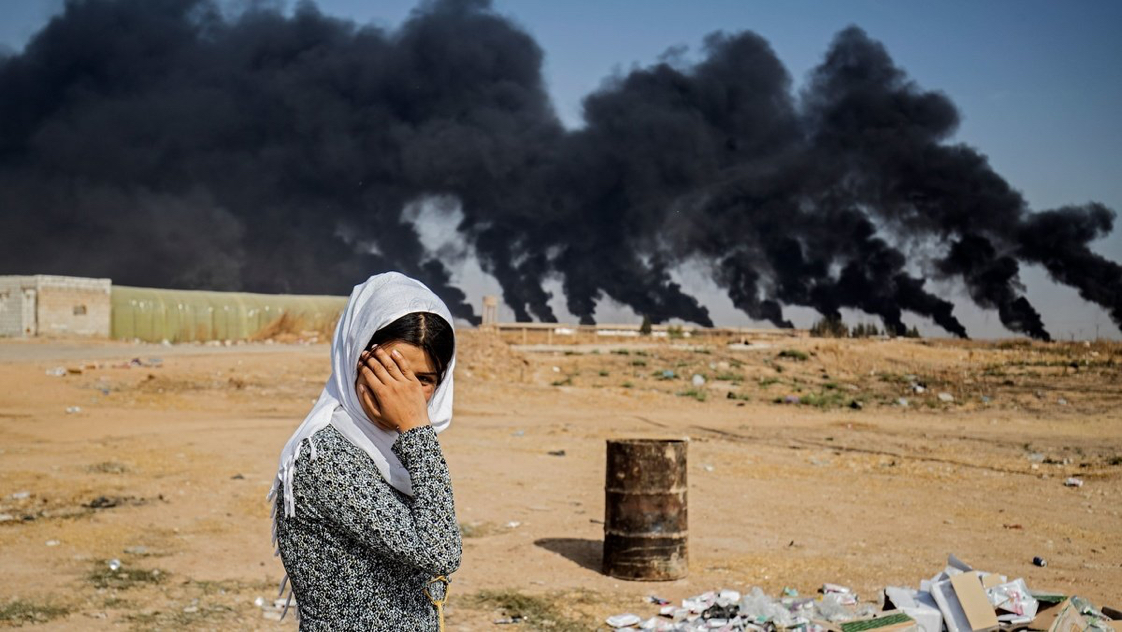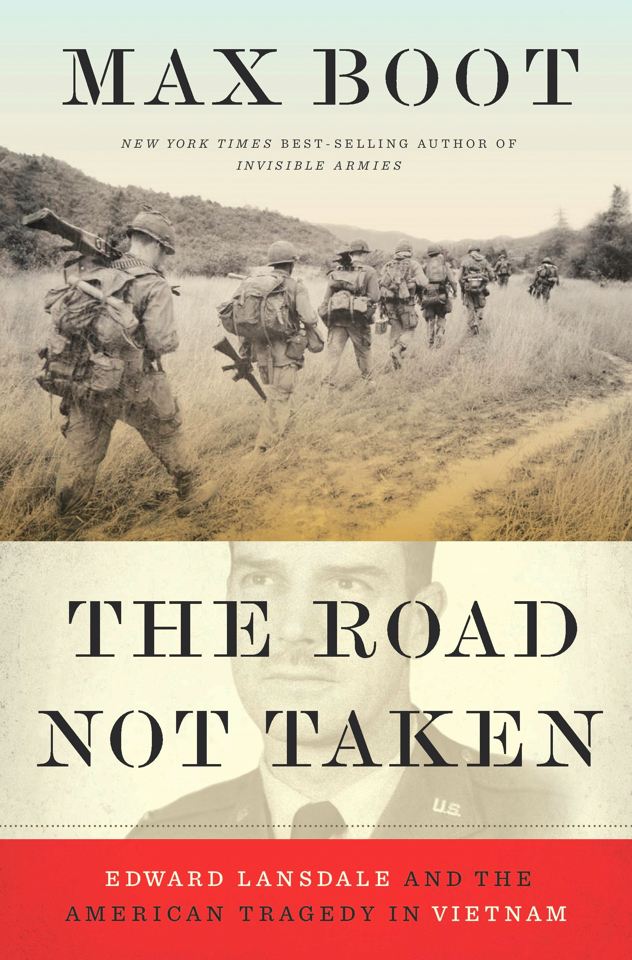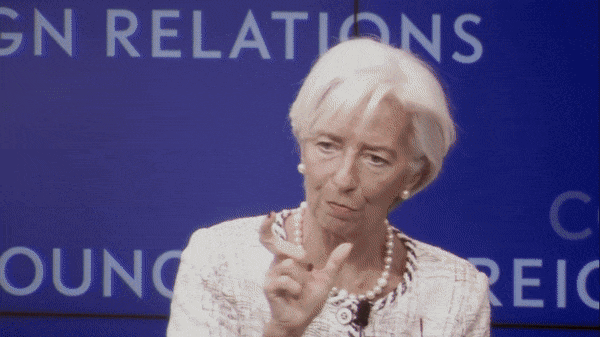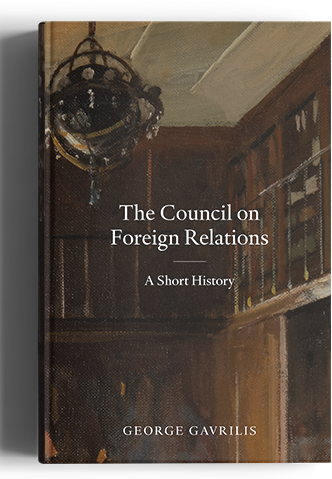For one hundred years, Council on Foreign Relations (CFR) books and publications have helped promote a better understanding of the foreign policy choices facing the United States and the world.
In 1937, the Studies Department—now called the David Rockefeller Studies Program, or CFR’s Think Tank—was created to provide a dedicated program for scholars. The Think Tank now comprises more than seventy full-time, part-time, and visiting scholars and practitioners, called fellows. They hail from varied backgrounds, including academia, government, the media, and the private sector.
CFR fosters independent research, enabling Council fellows to produce in-depth, policy-prescriptive books that affect foreign policy. Fellows monitor developments in the major regions and countries around the world and study topics such as nuclear proliferation, terrorism, global governance, energy, trade, international economics and finance, climate change, development, global health, defense policy, and cyber and digital policy.
Since its founding in 1921, CFR has produced almost 450 books, which have been published by trade and university presses and won numerous awards and accolades, including a Pulitzer Prize nomination. The following is a short list of notable CFR Books. A full list can be found here.
1920s
1928
The Political Handbook of the World series
edited by Walter H. Mallory
This series, edited by former CFR Executive Director Walter H. Mallory, detailed each country’s parliaments, governments, leaders and programs of political parties, and press, with the aim of providing “facts necessary to an intelligent understanding of world events as they are reported in the press day to day.” CFR continued to print annual editions of this “indispensable manual” until 1987.
Read More1930s
1930
Europe: The World’s Banker; 1870–1914
Herbert Feis
This book explored Europe’s foreign investment and the prewar connection between finance and diplomacy abroad. A Foreign Affairs review stated, “few books published in recent years have made more substantial contributions to the history of pre-war international relations in the broadest sense.” The book was reissued in 1965, suggesting its lasting merit in the field of foreign policy.
Read More1939
War and Peace Studies project
Started at the outbreak of hostilities in Europe, this project was purposed to support the Department of State in delivering considerations of the political and economic effects of the war on the United States and American interests in the settlement when hostilities ceased. The project culminated in 1945, having completed 361 meetings and 670 memoranda prepared and submitted to the State Department.
Read More1940s
1947
The Price of Power
Hanson W. Baldwin
This book by the Pulitzer Prize–winning author and military affairs editor of the New York Times came out of a series of CFR study-group meetings, many of which Baldwin chaired, immediately after World War II. Recognizing the challenge of preserving the liberal world order in a bipolar world, the author wrote: “The price of power is huge; it is not ease but toil, not peace but struggle.”
Read More1949
Public Opinion and Foreign Policy
edited by Lester Markel
This collection of essays argued that the U.S.-led world order would fail in the absence of favorable public opinion. Based on conversations with international correspondents, government officials, and study-group discussions at CFR, the book warned that public support could not be garnered until the United States countered suspicion and propaganda at home and abroad.
Read More1950s
1953
The Undeclared War, 1940–1941
William L. Langer and S. Everett Gleason
This “global history in the grand manner”was written by the two noted historians. It detailed the two years before the United States entered World War II, arguing that “American neutrality was hardly more than a technicality.” Described as “rich in detail and packed with information,” the book won the 1954 Bancroft Prize in History.
Read More1957
Nuclear Weapons and Foreign Policy
Henry A. Kissinger
The result of CFR working-group discussions, this book challenged contemporary views on massive retaliation and provided a framework for U.S. nuclear weapons policy and foreign policy at large in the post–Vietnam War era. Accessible to the general reader and valuable to experts, it spent fourteen weeks on the best-seller list and was widely studied by military leaders and policymakers.
Read More1960s
1964
On Dealing With the Communist World
George F. Kennan
Based on Kennan’s lectures at CFR, this “remarkable little book” explored the West’s options for dealing with the spread of communism. Kennan questioned the West’s rigid commitments to the North Atlantic Treaty Organization and “total irreconcilability” toward East Germany, instead arguing for “full freedom of movement” by Western nations to set policy toward communist states.
Read More1967
The Artillery of the Press: Its Influence on American Foreign Policy
James Reston
This book came out of several sessions of CFR’s Elihu Root Lecture Series, for which Reston, “one of the nation’s most prominent journalists,” was a speaker. The book explored “the inevitable conflict between reporters and officials,” particularly in the field of foreign policy reporting, and the responsibility of the newspaper business to challenge to official line. In short: “Governments lie; newspapers catch them.”
Read More1968
Gulliver’s Troubles, or the Setting of American Foreign Policy
Stanley Hoffman
Part of the Atlantic Policy Series published by CFR, this book examined the role of the United States in the international system and “what the United States can or cannot do, given the kind of nation it is, in the kind of world we have.” Hoffman called for using uniquely American ideals: “encouragement of diversity, military strategic expertise, peacemaking activity, and bargaining skills already acquired in domestic issues.”
Read More1968
The Economics of Interdependence: Economic Policy in the Atlantic Community
Richard N. Cooper
This book explored the balance between the rapid rate of global economic interdependence and the domestic political and economic objectives of the nation-state. Cooper offered an in-depth “look at the world economy and its policies of change in regard to traditional and alternative payment arrangements, international economic relationships between industrial countries, and restraints on international transactions.”
Read More1968
A New Foreign Policy for the United States
Hans Morgenthau
This book by a founding father of the realist school warned against the extremes of “indiscriminate globalism” and “indiscriminate isolationism.” With pointed critique of contemporary U.S. policy on foreign aid and intervention, containment of China, and the Vietnam War, Morgenthau advocated for the importance of the nation-state and a more serious understanding of the threat of nuclear war.
Read More1970s
1975
A Responsible Congress: The Politics of National Security
Alton Frye
Frye’s book examined how increasing public trust in Congress, in the wake of the Watergate scandal and the failure of U.S. policy in Southeast Asia, could shift the power balance between the executive and the legislative branches for improved national security and foreign policy outcomes.
Read More1975
The Dilemmas of the Dollar: The Economics and Politics of United States International Monetary Policy
C. Fred Bergsten
Appearing at “a propitious moment”—detailing the end of the gold standard and the rise of the U.S. dollar as a global reserve currency—the book analyzed the costs and benefits of the alternative international monetary arrangements on U.S. national interests and examined the political side of international finance.
Read More1976
The Vietnam Legacy: The War, American Society, and the Future of American Foreign Policy
edited by Anthony Lake
This volume of twenty-four essays—written by government officials, journalists, and academics, and edited by Lake, who would later serve as President Bill Clinton’s national security advisor—sought to “examine the lessons of Vietnam before debate ends and they become doctrine.” It maintained that the Vietnam War was not fundamentally unique and that some approaches were already being incorporated into U.S. foreign policy.
Read More1977
China and America: The Search for a New Relationship
edited by William J. Barnds
Published less than a year after Chinese leader Mao Zedong’s death, this CFR Book explored the rapid changes in China after it opened to the West, the historical context and potential future of U.S.-China relations with an eye to shifting U.S.-China-Russia interactions, and implications of international recognition of mainland China on U.S.-Taiwan relations.
Read More1980s
1989
Right v. Might: International Law and the Use of Force
edited by Louis Henkin
This collection of essays by prominent thinkers took on the “great debate” on whether international law ought to permit the use of military force to preserve democracy and human rights around the world and whether the UN Charter’s “authoritative statement of the law on the use of the force” would side with nation-states’ right to autonomy and self-determination.
Read More1990s
1991
The Rise of Nations in the Soviet Union: American Foreign Policy and the Disintegration of the USSR
edited by Michael Mandelbaum
This collection of essays, which grew out of an October 1990 CFR symposium, was published right as the Soviet Union was on the cusp of disintegration. The collection discussed the implications of Soviet dissolution on the West and the issues of nationalism and ethnic conflict that would arise after the fall of the Soviet empire.
Read More1998
The Reluctant Sheriff: The United States After the Cold War
Richard N. Haass
Published seven years after the end of the Cold War, the book identified the contemporary period as an age of international deregulation—as superpower rivalry had ended—and argued for the United States to resist the lure of isolationism and instead adopt a foreign policy of “regulation” to promote order and stability, even if reluctantly, across the world.
Read More1999
Alliance Adrift
Yoichi Funabashi
A “first-class diplomatic history told through human interactions,” this CFR Book dissected four case studies to offer a dynamic and informative overview of the process of redefining the U.S.-Japan alliance in a radically changed post–Cold War scenario that saw China’s economic and military rise, Asia’s financial crisis, and Japan’s economic decline and political immobility.
Read More2000s
2004
In Defense of Globalization
Jagdish N. Bhagwati
A BusinessWeek Best Book of the year, this CFR Book by the renowned economist cut through the noise on the contentious issues surrounding globalization and argued that properly regulated, globalization would be the most powerful source for social good in the world—one that would lead to prosperity in developing nations and create an international hybrid of cultures, not a cultural hegemony.
Read More2004
The River Runs Black: The Environmental Challenge to China’s Future
Elizabeth C. Economy
In this CFR Book, Economy argued that China’s approach to environmental protection mirrored its economic development program. Selected by the Globalist as one of the top ten books of the year, this book provided insightful analysis of the economic and political roots of China’s environmental challenge as well as the evolution of the leadership’s response.
Read More2006
War Made New: Technology, Warfare, and the Course of History; 1500 to Today
Max boot
This CFR Book provided a stirring analysis of the last five hundred years of warfare—from the defeat of the Spanish Armada to the war on terrorism—and detailed how innovations in weaponry and tactics have not only transformed how wars are fought and won but also have guided the course of human events.
Read More
2008
Preventive Priorities Survey
from the Center for Preventive Action (CPA)
CFR’s Center for Preventive Action launched its annual Preventive Priorities Survey to help U.S. policymakers focus on potential areas of instability and conflict that could harm U.S. interests. These much-anticipated assessments are now used in briefings throughout the U.S. government and also serve as the basis for CPA’s widely respected Contingency Planning Memoranda, which provide detailed recommendations on how to avert and manage foreign policy crises.
Read More2010s
2010
Paradise Beneath Her Feet: How Women Are Transforming the Middle East
Isobel Coleman
This “clearly written, deeply moving, and wonderfully enlightening” CFR Book journeyed through Afghanistan, Iran, Iraq, Pakistan, Saudi Arabia, and other Muslim-majority countries to reveal how women and men activists there are working within the tenets—and offering progressive interpretations—of Islam to create economic, political, and educational opportunities for women.
Read More2013
Nigeria: Dancing on the Brink
John Campbell
“A lively and sometimes highly critical analysis of the country’s political class,” this CFR Book argued that “ubiquitous patronage and corrupt behavior fueled by oil money is a root cause of Nigeria’s political and economic sclerosis” and called on the United States to use soft diplomacy to help those within Nigeria—a strategically important country—who are “working to establish a democratic culture.”
Read More2013
Two Nations Indivisible: Mexico, the United States, and the Road Ahead
Shannon K. O’Neil
“An indispensable account of Mexico’s recent history,” this CFR Book set the record straight on sometimes-exaggerated daily news accounts of crime and drugs in Mexico to report on a more hopeful country, with a globally competitive economy, a rising middle class, and increasingly influential voters—a Mexico whose people, communities, companies, and commerce are intricately tied to the United States.
Read More2014
Maximalist: America in the World From Truman to Obama
Stephen Sestanovich
This “analytic tour de force” drew on memoirs, speeches, and declassified documents to capture the fluctuation in U.S. foreign policy, between maximalist overreaching and the underreaching in which retrenchments usually end. Although this back and forth makes some observers yearn for a greater continuity in American strategy, “discontinuity,” this CFR Book argued, “has been the source of our greatest success.”
Read More2015
The Hacked World Order: How Nations Fight, Trade, Maneuver, and Manipulate in the Digital Age
Adam Segal
“By far the best” among contemporary books on cybersecurity, this CFR Book detailed how the internet had ushered in a new era of geopolitical maneuvering—as governments use the web to wage war and spy on, coerce, and damage one another—and revealed the terrifying implications of anyone with minimal resources being able to execute a cyberattack on our economic livelihood, security, and personal identity.
Read More2016
The Man Who Knew: The Life and Times of Alan Greenspan
Sebastian Mallaby
Mallaby’s CFR Book is based on five years of research and unmatched access to the former Fed chairman who “dominated monetary policy so completely for almost two decades.” It won the 2016 Financial Times and McKinsey Business Book of the Year Award and the 2017 George S. Eccles Prize in Economic Writing, and was named a New York Times Notable Book, a Foreign Affairs Best Book, and an Economist Book of the Year.
Read More2017
False Dawn: Protest, Democracy, and Violence in the New Middle East
Steven A. Cook
This “detailed, thoroughly researched, highly readable” CFR Book argued that despite appearances, none of the societies affected during the uprisings of early 2010s had undergone social revolutions, the old structures of power were never eliminated, and hopes for democracy had disappeared in a maelstrom of violence and renewed state repression—likely “for at least a generation to come.”
Read More2018
The Marshall Plan: Dawn of the Cold War
Benn Steil
This CFR Book on the costly and ambitious initiative to revive western Europe after World War II won the 2019 New-York Historical Society Barbara and David Zalaznick Book Prize in American History and the 2018 American Academy of Diplomacy Douglas Dillon Award. It was also short-listed for the 2018 Duff Cooper Prize in Literary Nonfiction and received honorable mention for the 2019 Association for Slavic, East European, and Eurasian Studies Marshall D. Shulman Prize.
Read More
2018
The Road Not Taken: Edward Lansdale and the American Tragedy in Vietnam
Max Boot
A finalist for the Pulitzer Prize for Biography in 2019, Boot’s CFR Book argued that the Vietnam War “might have taken a very different course—one that was less costly and potentially more successful—if the counsel of this CIA operative and Air Force officer had been followed.” The book was both a New York Times best-selling and editor’s choice book and was listed by Amazon as one of the best biographies of the year.
Read More2018
The Third Revolution: Xi Jinping and the New Chinese State
Elizabeth C. Economy
In her CFR Book, Economy, whom Politico has listed among “Ten Names That Matter on China Policy,” called on the United States to “continue to seek opportunities for cooperation but at the same time be prepared to counter and confront China.” It was short-listed for the 2019 Lionel Gelber Prize, named a 2018 Foreign Policy Interrupted Book, and remains an Amazon best seller in the international diplomacy category.
Read More2020s
2020
The World: A Brief Introduction
Richard N. Haass
By providing “a clear and concise account of the history, diplomacy, economics, and societal forces that have molded the modern global system,” this New York Times best seller reminded readers of the need to better understand the interconnected world, both its promise and its threats, in order to make informed choices, be it as students, citizens, voters, parents, employees, or investors.
Read More2020
Isolationism: A History of America’s Efforts to Shield Itself From the World
Charles A. Kupchan
This “astute political history” explored the ideological roots of U.S. isolationism from the founding era through the Donald J. Trump presidency, telling the fascinating story of the enduring connection between the isolationist impulse and the American experience and explaining why the allure of nonentanglement is making a comeback today.
Read More
